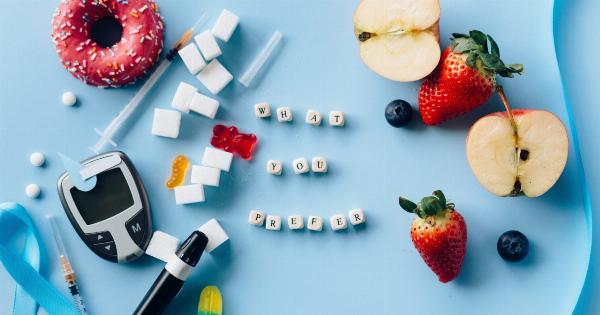Fruits are an essential part of a healthy diet. They are packed with critical nutrients that keep us healthy and help prevent many diseases, including heart disease, stroke, and cancer.
However, not all fruits are created equal when it comes to their impact on blood sugar and insulin levels.
Understanding the glycemic index (GI) of different fruits is crucial for people with diabetes, insulin resistance, or anyone trying to manage their blood sugar levels.
The GI ranks carbohydrates from 0 to 100 based on how quickly they raise blood sugar levels. High GI foods (70 or higher) are rapidly absorbed, causing a significant spike in blood sugar levels, while low GI foods (55 or lower) are slowly absorbed, resulting in a more gradual increase in blood sugar.
: The 10 fruits with the biggest impact on glucose and insulin levels
1. DATES
Dates are one of the most concentrated sources of natural sugar and have the highest GI score (103) of any fruit. Just three dates contain around 60 grams of carbs and 18 grams of sugar.
Eating dates can cause a rapid and sustained spike in blood sugar levels, providing an energy boost, but the effect is short-lived, and the drop afterward might leave you feeling tired and hungry.
2. WATERMELON
Although watermelon has numerous health benefits, it is not the best fruit choice for individuals watching their blood sugar levels.
Watermelon has a GI score of 72 and contains high amounts of fructose, a type of sugar that can cause insulin resistance when consumed in large amounts.
3. PINEAPPLE
Pineapple is high in sugar and contains enzymes that aid in digestion, but the fruit has a GI score of 66, which is considered a moderate GI food.
Pineapple contains significant amounts of vitamins and minerals and can be consumed in moderate amounts if an individual’s blood sugar levels are under control.
4. RAISINS
Raisins are another high-GI fruit, with a score of 64. When grapes are dried to make raisins, their sugar content becomes concentrated. Raisins contain approximately 22 grams of sugar per 1/4 cup serving.
People watching their blood sugar levels should limit their intake of raisins or avoid them altogether.
5. BANANAS
Bananas are a staple fruit in many people’s diets and are an excellent source of dietary fiber and potassium. However, bananas have a high sugar content and a GI score of 62.
Individuals with blood sugar issues or diabetes should consume bananas in moderation, or opt for a low GI banana like a Lady Finger.
6. GRAPES
Grapes are a tasty snack that is rich in antioxidants and flavonoids, but they are not ideal for people managing their blood sugar levels. Grapes have a GI score of 59 and contain approximately 16 grams of sugar per 1/3 cup serving.
It is best to limit the consumption of grapes or pair them with a protein source to slow down the absorption of sugar.
7. MANGOS
Mangos contain high amounts of fiber, vitamins, and minerals. However, they are also high in carbohydrates and have a GI score of 51. Mangos are best consumed in moderation and paired with a protein source to slow down the absorption of sugar.
8. FRUIT JUICES
Fruit juices are a convenient and tasty way to get essential vitamins and minerals. However, fruit juices contain high amounts of sugar and have a GI score of up to 70, making them a poor choice for individuals with diabetes or blood sugar issues.
Choose whole fruits over fruit juices, or opt for freshly squeezed vegetable juices that are low in sugar.
9. DRIED FRUITS
Dried fruits have a more concentrated sugar content than whole fruits and can cause a more significant spike in blood sugar levels. Dried fruits have a GI score of around 56 and should be consumed in small amounts or avoided altogether.
Choose fresh fruits over dried fruits if possible.
10. POMEGRANATES
Pomegranates contain a high amount of sugar and have a GI score of around 53. Eating pomegranates in moderation can provide many health benefits, but individuals with diabetes or blood sugar issues should consume them carefully.
Conclusion
While fruits are nutritious and an essential part of a healthy diet, some of them can cause blood sugar and insulin spikes.
Individuals with diabetes or blood sugar issues should pay close attention to the glycemic index of fruits and choose low GI fruits to minimize blood sugar spikes. It’s best to consult a dietitian or medical professional for advice on controlling blood sugar levels through dietary changes.






























